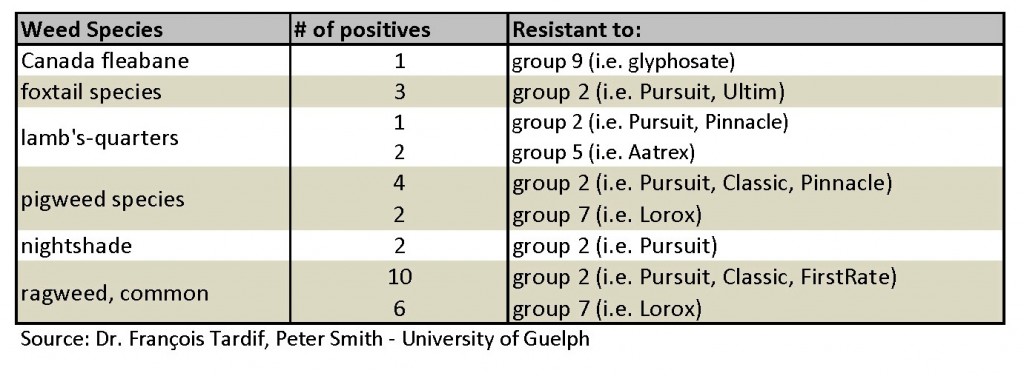According to the University of Guelph’s testing lab for herbicide resistant weeds, 86% of all submissions sent from the 2013 season were resistant to a particular herbicide that had historically been effective. A total of 29 samples were tested with one unprecedented sample having five species (pigweed, common ragweed, lamb’s-quarters, green foxtail and giant foxtail) that were resistant to one class of herbicide (group 2, i.e. Pursuit), with one of the five species (lamb’s-quarters) being resistant to two different classes of herbicides (group 2, i.e. Pursuit and group 5, i.e. Aatrex).
Three Canada fleabane samples were submitted, unfortunately only one was able to produce seedling plants but was resistant to glyphosate, according to Dr. François Tardif who provides the testing service to Ontario farmers.
Dr. Peter Sikkema’s research group has been surveying the incidence of glyphosate resistant Canada fleabane, common and giant ragweed and an overview of those maps can be found here.
The table below provides a summary of the weed species tested, the number of confirmed herbicide resistant samples and to what herbicide group the sample was resistant to.

Past Testing Results:
2013 testing
Source: Fieldcropnews